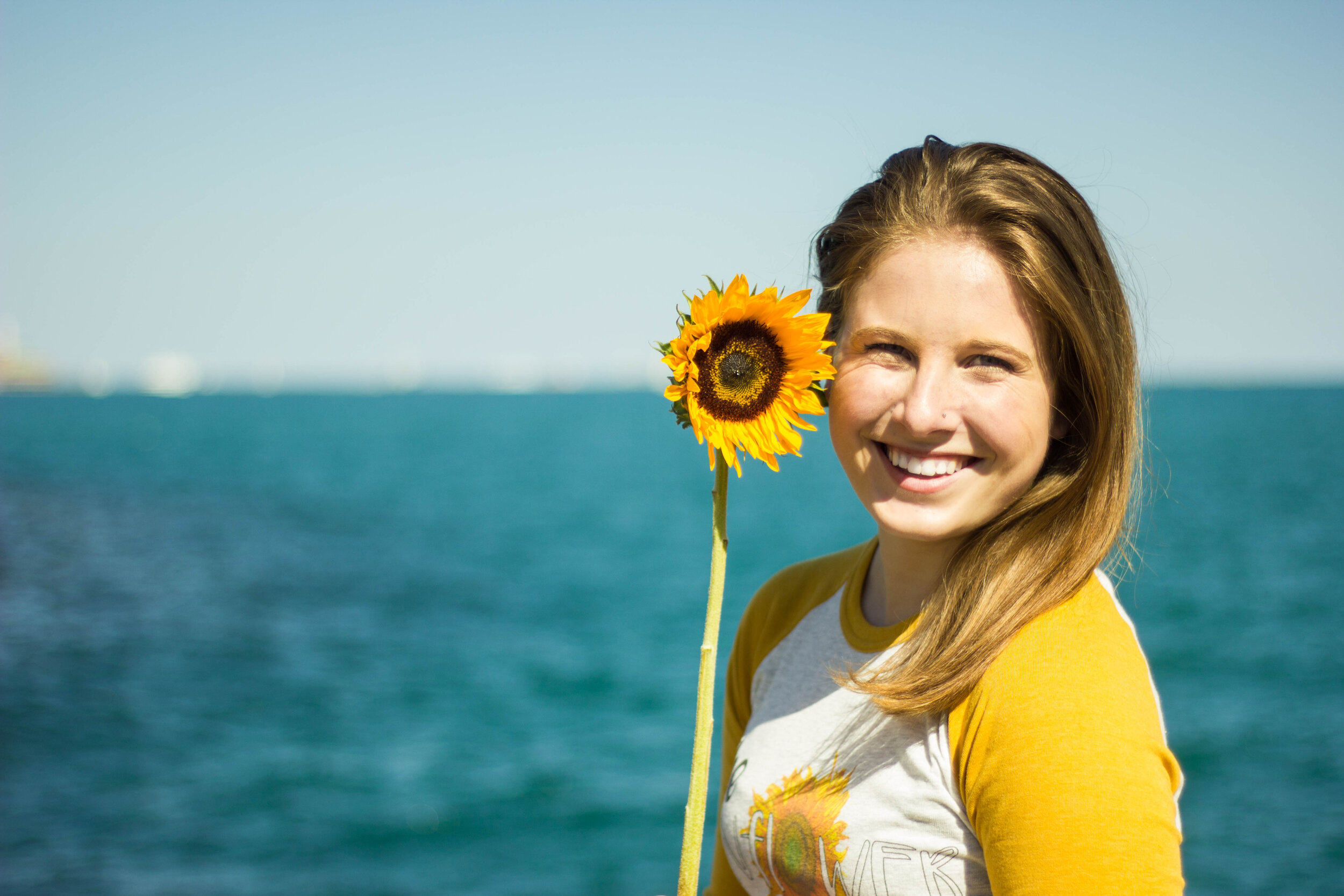About Leah
Leah Zeiger (she/hers) is a dancer and choreographer based in Los Angeles, CA. Her work frequently reflects her lived experience as a survivor of a teenage abusive relationship. Zeiger is pursuing movement practice surrounding the themes of curiosity, forgiveness, empathy and memory, and she is the founder of The Sunflower Project. Zeiger is the creator of the Body Memory Method, a unique somatic theory honoring and investigating the body’s knowledge through movement. She recently restaged You Live In My Spine as part of the Odyssey Summer Dance Festival, and will be premiered a new work - “HYSTERIA” - at Highways Performance Space.
Leah’s Story
Photo by Dolly Ave
Leah Zeiger grew up in Los Angeles, and began attending dance classes at a very young age. She continued to dance throughout middle and high school, studying at studios as well as in her high school dance company. As a sophomore, she tore her ACL skiing, and during the 9-month, dance-less recovery process she realized she wanted dance to be her career.
Then, as a junior, she got in a relationship that would change her life forever. Her boyfriend was abusive - physically, mentally, and sexually - and even after she was able to break up with him he continued to terrorize her and her family. He stalked her, broke into her home, and threatened the safety of her and her family. Eventually, he went to prison.
“I’m not proud to be a survivor - I’m proud of what being a survivor makes me.”
During that time, Leah’s friends in high school were confused, scared, and even angry at her for going through something they couldn’t themselves understand. Leah turned to her high school dance teacher, who gave her the advice to “put it in your dance.” So she did. She choreographed Unnamed, a solo she performed in the midst of the trauma of trying to get her ex behind bars. Those same friends - the ones who couldn’t listen to Leah’s story - watched that solo and reacted with love, care, and tenderness. That is when Leah realized that she not only wanted to be a dancer, but she needed to be a choreographer. She needed to continue to use the powerful tool of movement as a means to share her story, and the stories of so many other unnamed girls in the world.
With this in mind, she also founded The Sunflower Project - an organization to use dance to educate young people on abusive relationships and provide movement as a source of healing.
Photo by Madeline Grace
Photo by Dolly Ave
“Abuse is an ugly story. But when I dance, it becomes a story of beauty, strength, and healing.”
Leah went on to study dance at Columbia College Chicago and received her Bachelor’s degree in 2017. For three years she continued to work and create in Chicago before returning to her home of Los Angeles. She is trained in ballet, modern, West African, hip hop, and latin, and has studied under the direction of Peter Carpenter, Onye Ozuzu, Paige Cunningham, Meghann Wilkinson, Tosha “Ayo” Alston, Shawn Lent, Julia Rhoads, Jacqueline Sinclair, Leah Cox, Kyle Marshall, Nia Love, Trae Turner, and more.
Her work explores both her own lived experience as a survivor and the experience of other survivors and allies. Her first evening-length work, Once It All Ends, precipitated from the question “how do survivors move?” and was based on research conducted over a year-long process of hosting movement workshops for survivors of all kinds.
“There has never been any assumption of an ‘answer’. Nevertheless, I ask.”
Leah’s creative process often consists of embodied research, bringing in survivors who are not necessarily trained dancers to explore their own authentic movement, impulses, and boundaries. Survivor movement workshops utilizing the Body Memory Method are something Leah hosts regularly as both a means for movement creation for choreographic work and a way to connect with her community of survivors and share dance as an agent for healing.
Often, her work centers on a question that can never be answered, which allows for truly infinite possibilities and results in a never-ending process. Leah’s work is personal and universal, harrowing and honest, bold and necessary. It has been called “
Leah is also the creator of The Body Memory Method - a philosophy under which she grounds her teaching, choreographic, and performance practice.
Photo by Jeanne Donegan



